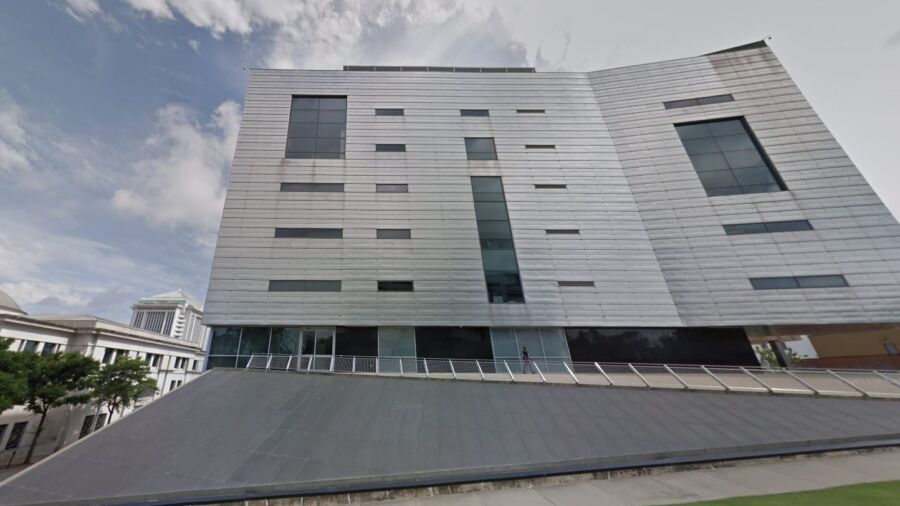A federal judge is allowing a defamation lawsuit against the Southern Poverty Law Center (SPLC) to move forward after the SPLC labeled an immigration reform advocacy group as an “anti-immigrant hate group.”
Judge William Keith Watkins of Alabama’s Middle District Federal Court denied the SPLC’s motion to dismiss a lawsuit brought by the Dustin Inman Society (DIS) on March 31.
The Dustin Inman Society, which describes itself as an organization with a mission of “promoting the enforcement of immigration laws in the United States,” has argued that the SPLC’s description of their organization as a “hate group” is defamatory and exposes them to an increased risk of violent retribution.
The Dustin Inman Society is named after Dustin Inman, a 16-year-old Georgia boy killed in a car crash in 2000 that involved an illegal immigrant.
The SPLC is a nonprofit civil rights litigation and advocacy organization that also runs a website purporting to track extremist activity within the United States. The SPLC documents these extremist group labels on its “Hate Map” web portal.
The “Hate Map” web portal includes the labels—anti-immigrant, anti-LGBTQ, anti-Muslim, antisemitism, Christian identity, general hate, hate music, KKK, male supremacy, neo-Confederacy, Neo-Nazi, Neo-Völkisch, racist skinhead, radical traditional Catholicism, and white nationalism.
A complaint (pdf) by the DIS argues the SPLC’s abruptly reversed a prior decision not to add the Dustin Inman Society to its “Hate Map”. In 2011, the SPLC allegedly told the Associated Press that the DIS did not belong on the group’s “Hate Map” because DIS was pursuing its immigration policy objectives through the legal process rather than threats of violence or intimidation of immigrants.
“Because [DIS Founder and President D.A. King] is fighting, working on his legislation through the political process, that is not something we can quibble with, whether we like the law or not,” the SPLC allegedly announced in 2011.
Despite this prior decision not to list DIS as a hate group, the SPLC reversed course in February 2018, adding the “anti-immigrant hate group” label. The DIS complaint alleges the SPLC made no change to its criteria for labeling organizations as hate groups and that the DIS had not changed its behavior to warrant such labeling. Instead, the complaint indicates that a motivating factor for the “hate group” label was that the SPLC registered lobbyists in Georgia opposing a “pro-enforcement” immigration bill working through the state legislature.
King told the Daily Signal that the SPLC’s goal with the revised hate group label “was clearly to paint us as the extremists and to marginalize us in the eyes of state lawmakers and the media. That effort was largely successful.”
Violent Threats
The lawsuit argues that other individuals and organizations, like the Family Resource Council and Dr. Charles Murray, have faced violent threats after becoming the subjects of the SPLC’s hate group labels.
By denying the SPLC’s motion to dismiss the case, DIS’s defamation lawsuit against the organization can proceed.
“We regard the court’s denial of their motion to dismiss our case as the first step toward justice for the majority of Americans who demand the right to speak up against the organized crime that is illegal immigration without being smeared and attacked,” King said in an emailed statement.
NTD News reached out to the SPLC for comment, but the organization did not respond before this article was published.
The DIS lawsuit alleges the SPLC’s “hate group” labeling is a particularly concerning decision because the group has a reputation as a reputable source of information on extremist activity. Indeed, mainstream media outlets routinely cite the SPLC in their reporting on hate groups and extremism in the United States.
“SPLC is not taking the posture of an opinion columnist or political pundit, but instead claims it has specialized knowledge of the groups it monitors, holding itself out as having the ability to conduct in depth investigations and offering expertise on the groups it monitors and to make factual determinations regarding the organizations it includes in the ‘hate map’, not mere opinion,” the DIS lawsuit alleges.
In recent years, Republican and conservative commentators have increasingly pushed back on the SPLC, arguing the organization holds a bias that disfavors conservatives. In August of 2020, during the Republican National Convention for the 2020 election, the Republican Party adopted a resolution declaring “The SPLC is a radical organization, and that the federal government should not view this organization as a legitimate foundation equipped to provide actionable information to DHS or any other government agency.”
The SPLC said the RNC’s resolution gave “comfort to hate groups.” SPLC president and chief executive Margaret Huang said the resolution was designed to “excuse the Trump administration’s history of working with individuals and organizations that malign entire groups of people—including Black Lives Matter advocates, immigrants, Muslims and the L.G.B.T.Q. community—with dehumanizing rhetoric.”
In October 2020, the SPLC announced it was revising its “Hate Map” to no longer include labels for “black separatist” groups.
SPLC Lawyer
Last month, a lawyer for the SPLC was charged with domestic terrorism after he was arrested alongside anti-police activists at a demonstration opposing the construction of a new police training facility in Atlanta, Georgia.
Videos from the incident showed demonstrators throwing rocks and fireworks at police officers, and several pieces of construction equipment were set on fire. The SPLC said the lawyer arrested during that protest was working as a legal observer on behalf of the National Lawyers Guild (NLG) at the time.
The SPLC also said their employee’s arrest at the destructive demonstration “is not evidence of any crime, but of heavy-handed law enforcement intervention against protesters.”

